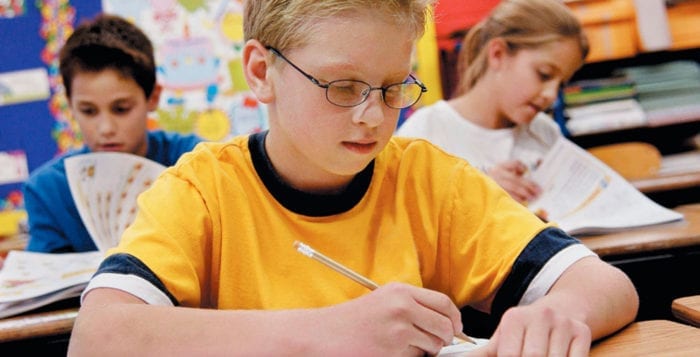By Daniel Dunaief

Once upon a time, a girl named Fiona read the book “The Emperor’s New Clothes.”
She thought it was funny and charming that a child could see what no one else admitted. But then, something strange happened: she thought she could also see things that no one else could.
“That’s sweet, Fiona, but focus on your school work and let your imagination run wild at other times,” her father told her that night.
Fiona did as she was told because she wanted to please her parents and her teachers. It was her teachers that caused problems for her.
It started with Mrs. Butler in her third grade class. A tall, thin woman with white hair and glasses, Mrs. Butler always wore high-heeled shoes. She looked directly in the eyes of every student. One day, her friend Simona fell and hit her head. When Mrs. Butler bent down and checked on her friend, Fiona saw the kind of coat doctors and nurses wear appear around her shoulders. Fiona rubbed her eyes, but the coat was still there. Mrs. Butler calmly told the class to go to their seats, sent Bill to get the nurse and kneeled on the floor near Simona.
When the nurse left with Simona, Mrs. Butler’s white coat disappeared.
The next day, Jeff couldn’t understand a math problem. He wrote numbers all over the paper, but he didn’t have the answer.
Fiona noticed a change again in Mrs. Butler’s clothing. Instead of her powder blue blouse, she had an orange vest and white gloves. With numbers on the smartboard, she directed Jeff away from all the dead ends.
When he got closer to the answer, Jeff smiled. Fiona looked back at Mrs. Butler, whose orange vest and white gloves disappeared.
Later, Doug and Andrew got into an argument near the stack of books at the back of the room. When Doug swung his arm to make a point, he knocked over several books.
Fiona saw Mrs. Butler’s clothing change again, this time into the kind of black and white stripes that referees wear in football games. She could even see a whistle dangling from her teacher’s neck.
The next morning, Jill and Amanda couldn’t agree on how to do a class project. Jill marched to the front of the classroom to complain. Amanda followed closely.
While Fiona couldn’t hear everything, she saw a black robe form around Mrs. Butler.
When the conversation ended, Mrs. Butler said something that made both girls happy. They shook hands and walked back to their desks, where they returned to work on their project.
One day, Fiona arrived early to class. She and her teacher were alone and she felt like she had to say something.
“Mrs. Butler?” Fiona asked.
“Yes?” Her teacher replied.
“I see all the clothing you wear,” Fiona said. “I don’t think anyone else sees it.”
Mrs. Butler narrowed her eyes and looked carefully at her student.
“What do you see?” Mrs. Butler asked.
She described the medical jacket, the orange vest, the referee’s coat and the judge’s robe.
“What do you think of all that?” Mrs. Butler asked.
“Is it real?” Fiona asked.
“Thank you for seeing,” Mrs. Butler grinned. Other students walked into the room and class started.
Just then, Fiona heard an alarm. Mrs. Butler reacted immediately. She held up a shield and directed everyone to the back of the room.
While they waited, Mrs. Butler told everyone to remain quiet. The class waited for the all clear.
“It was a drill,” Mrs. Butler said. “You can return to your desks.”
Fiona was the last to leave the classroom that day.
“Fiona?” Mrs. Butler asked. “Is everything okay?”
“Yes,” she said. “Thanks for … everything.”

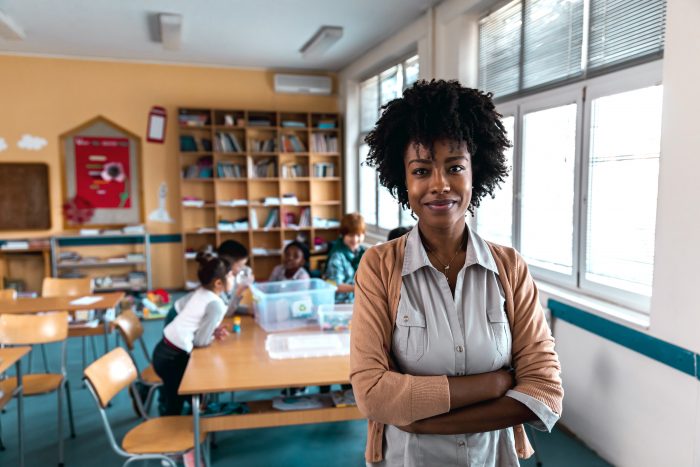
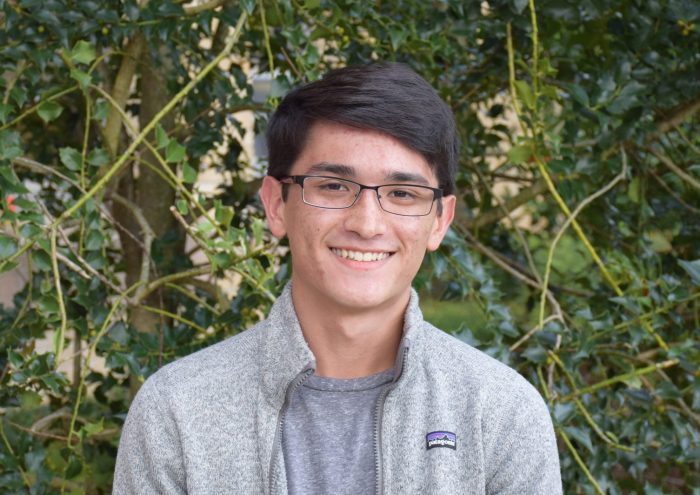
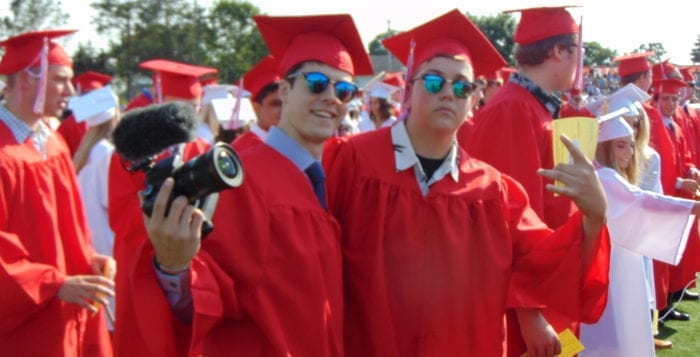
 Ribaudo will be graduating with a cumulative weighted average of 105.89.
Ribaudo will be graduating with a cumulative weighted average of 105.89.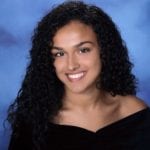 Verma will be graduating with a cumulative weighted average of 105.98.
Verma will be graduating with a cumulative weighted average of 105.98.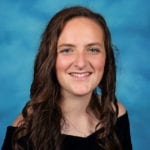 Black will be attending the University of Notre Dame to study mathematics with a concentration in life sciences. Selecting her favorite high school memory is difficult, because there have been so many. She was fortunate to go on the German Exchange trip her sophomore year, and said that it was a blast and she learned so much. Also her freshmen year she ran her last race of the season in cross-country and became an all county runner. But there are so many, even small moments like bonding as a class, or joking around at
Black will be attending the University of Notre Dame to study mathematics with a concentration in life sciences. Selecting her favorite high school memory is difficult, because there have been so many. She was fortunate to go on the German Exchange trip her sophomore year, and said that it was a blast and she learned so much. Also her freshmen year she ran her last race of the season in cross-country and became an all county runner. But there are so many, even small moments like bonding as a class, or joking around at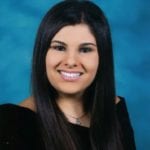 Musco will be attending Stony Brook University in the fall. She will be in the Honors College as well as the Scholars for Medicine Program (8 year medical program). She plans to major in biology with a focus in neurobiology, as well as
Musco will be attending Stony Brook University in the fall. She will be in the Honors College as well as the Scholars for Medicine Program (8 year medical program). She plans to major in biology with a focus in neurobiology, as well as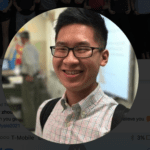 Zhou will be attending Yale University to study biomedical engineering or economics. His favorite high school memory is staying overnight every year at Relay for Life. He said it’s an incredible event that raises a ton of money for the American Cancer Society, and to be a part of it with his friends was so rewarding and fun. Zhou is most excited to be able to meet so many new people and form more lifelong friendships, as well as gain more independence to explore many new academic and extracurricular interests. He said he is going to miss the people at Smithtown West the most. All the teachers he had were so incredibly passionate, and he said he developed real relationships with each one. His amazing friends have been through so much with him; the best times he has had were the ones spent with them, and he said it’s going to be so hard not having them with him every day. In high school, he was involved in Academic Quiz Bowl, Science Olympiad, math team, DECA, Freshman Kickstart Mentoring, varsity badminton, symphonic band, and several honor societies.
Zhou will be attending Yale University to study biomedical engineering or economics. His favorite high school memory is staying overnight every year at Relay for Life. He said it’s an incredible event that raises a ton of money for the American Cancer Society, and to be a part of it with his friends was so rewarding and fun. Zhou is most excited to be able to meet so many new people and form more lifelong friendships, as well as gain more independence to explore many new academic and extracurricular interests. He said he is going to miss the people at Smithtown West the most. All the teachers he had were so incredibly passionate, and he said he developed real relationships with each one. His amazing friends have been through so much with him; the best times he has had were the ones spent with them, and he said it’s going to be so hard not having them with him every day. In high school, he was involved in Academic Quiz Bowl, Science Olympiad, math team, DECA, Freshman Kickstart Mentoring, varsity badminton, symphonic band, and several honor societies.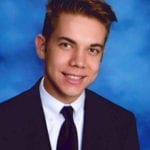 DiPietrantonio will attend
DiPietrantonio will attend